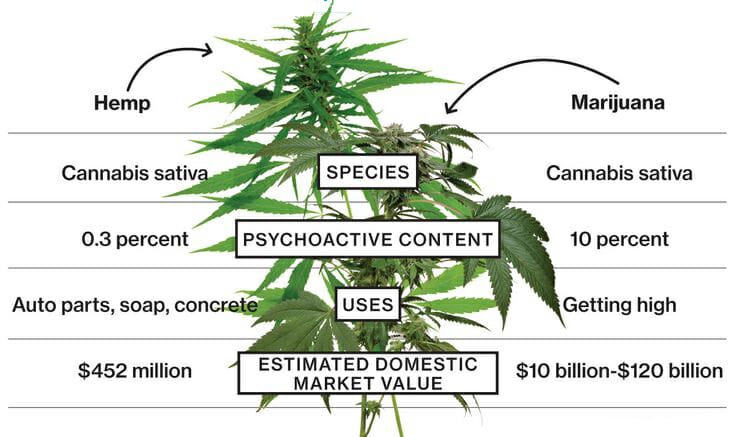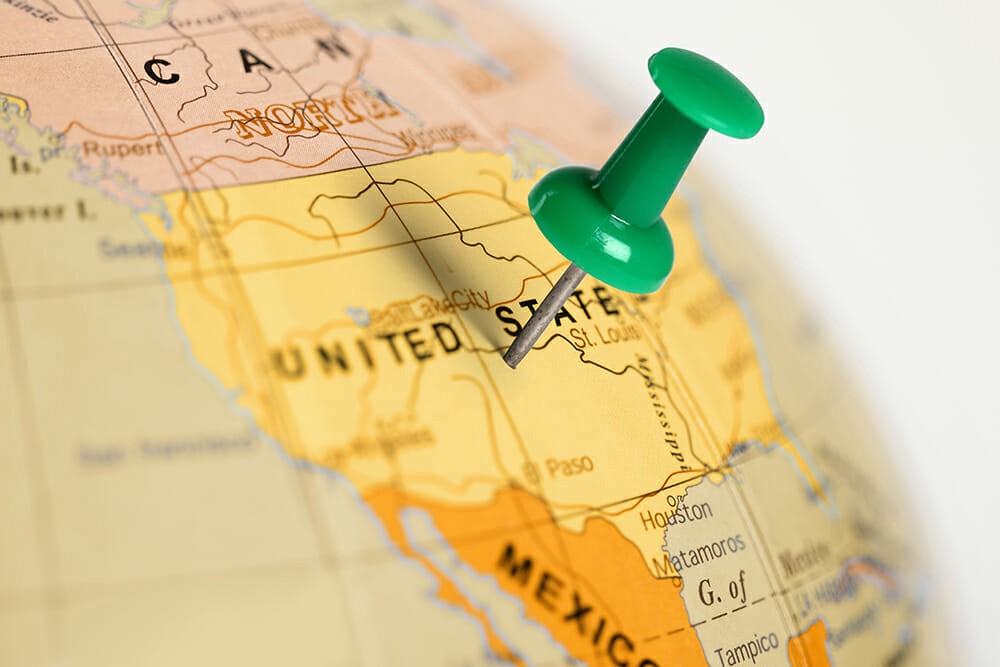Due to its ability to naturally treat dozens of chronic conditions, the demand for Cannabidiol (CBD) has skyrocketed. As the popularity of the hemp-derived compound has begun to shift, so has the acceptance in many states across America including California, Colorado, and Kentucky.
While we are definitely moving in the right direction, the legality of CBD as a whole is still very unclear due to different laws in different states, and even different laws at state and federal level. Because of this, many are deterred from using CBD, and instead of gaining the benefits of CBD, they’re stuck wondering: “Is CBD legal?”
To answer this question, it’s not exactly straightforward.
While it’s true that CBD is legal in all 50 states, there are situations when it isn’t legal. The difference between legal and illegal typically depends on several important factors determined by the state in question. There is, however, one very important factor that is a crucial determinant across all states, and that is where the CBD is derived from–hemp or marijuana.
The Difference Between CBD From Hemp and Marijuana
While most of us understand the difference between CBD isolate and full spectrum CBD, there is another less known, but very important difference when it comes to CBD legality:
If the CBD was derived from hemp or from marijuana.
Now, marijuana and hemp are both members of the cannabis family, so they do share a lot of characteristics. There is, however, a crucial difference between the two–the amount of psychoactive Tetrahydrocannabinol (THC) each plant produces. While marijuana can contain up to 30% THC, hemp contains no more than 0.3% THC. In other words, marijuana can get you really high, while hemp has such a low amount of THC, that it would be impossible to get high off it.

Because hemp has no psychoactive effects, the law has no problem with it. Hemp products are completely legal and available in all types of different industries and stores across America. Marijuana, on the other hand, is much a different story. And this is why the source of a CBD product is crucial to its legality.
The Legality of Hemp-Derived CBD
So is CBD legal? If we’re talking about hemp-derived CBD, then the answer is yes. Now, the keyword here is “hemp-derived.” Because CBD from hemp has no psychoactive effects, the purchase, sales, or possession of hemp CBD products are completely legal in all 50 States. Because hemp is sometimes confused with the marijuana plant, there is still some stigma towards hemp-derived CBD, but from a legal perspective, hemp-derived CBD is completely legal and enjoys the rights of any other legal product.
The Legality of Marijuana-Derived CBD
Marijuana-derived CBD products, on the other hand, don’t enjoy the same luxuries. Because it has been derived from THC-rich marijuana, marijuana-derived CBD, even its isolated from, is considered as a byproduct of marijuana and is judged accordingly. In some states, marijuana-derived CBD is completely legal, while in others, it is completely illegal, but in most states, its a bit of a mixed bag, each state having CBD-specific laws.
While this political indifference has caused a ton of confusion for consumers, there are a handful of states where hemp-derived and marijuana-derived CBD are completely legal, which just might lead to a nationwide shift for CBD legality.

States Where CBD is Legal for Recreational Use
As of 2018, there are 8 States where the Cannabis plant, including both marijuana and hemp, are completely legal for recreational and medicinal use. These states are Alaska, California, Colorado, Maine, Massachusetts, Nevada, Oregon, and Washington. So if you find yourself in one of these wonderful states, you are free to legally use CBD in any form without a prescription.
States Where CBD is Legal for Medicinal Use
As of 2018, there are a total of 46 states (including the 8 states mentioned above) where CBD is legal with a prescription for medicinal usage. Now although CBD usage is for legal in these states, the law varies from state to state, with 17 states having specific legislation for the THC-levels found in CBD and the conditions being treated with CBD.
These 17 states are Alabama, Florida, Georgia, Indiana, Iowa, Kentucky, Mississippi, Missouri, North Carolina, Oklahoma, South Carolina, Tennessee, Texas, Utah, Virginia, Wisconsin, and Wyoming. See the table below for specific legislations per state.
The other 29 states that fully legalize the Medical use of all CBD products derived from either hemp or Marijuana are: Alaska, Arizona, Arkansas, California, Colorado, Connecticut, Delaware, Florida, Hawaii, Illinois, Maine, Maryland, Massachusetts, Michigan, Minnesota, Montana, Nevada, New Hampshire, New Jersey, New Mexico, New York, North Dakota, Ohio, Oregon, Pennsylvania, Rhode Island, Vermont, Washington and West Virginia. The territories of Guam and Puerto Rico also allow the use of CBD products on medical grounds.
Before purchasing any CBD product in these states (aside from the 8 mentioned above) you must have a medical prescription issued by a certified medical doctor. Each state has a particular concentration of THC it allows to be present in a CBD product, with the percentage ranging from 0.3% — 8%. (See details in table 1.1 below). Even though the legal situation seems to be shifting in a positive direction, if you are in any of these states, it is very important to be aware of the state’s laws towards CBD.
States Where CBD is Illegal
Now, we’ve already discussed 46 states where Marijuana-derived CBD is legal at various levels, which means that there are still 4 states where Marijuana-derived CBD is completely illegal.
These states are Idaho, Kansas, Nebraska and South Dakota. Now, even though marijuana-derived CBD is legal in these states, the laws are still unclear, so there are still businesses selling CBD, and patients using CBD in these states. We totally believe in the benefits CBD offers and support the CBD movement, but if you are in one of these states, be cautious and careful when considering using CBD products.
As the CBD movement continues to grow, we are very optimistic that both hemp-derived and marijuana-derived CBD will be completely legal in all 50 states within the next 5 years. Of course, it is still very hard to predict the future, especially given the constantly shifting political landscape, but we can continue to push forward, build awareness, and educate the world about the benefits of CBD.
